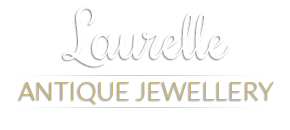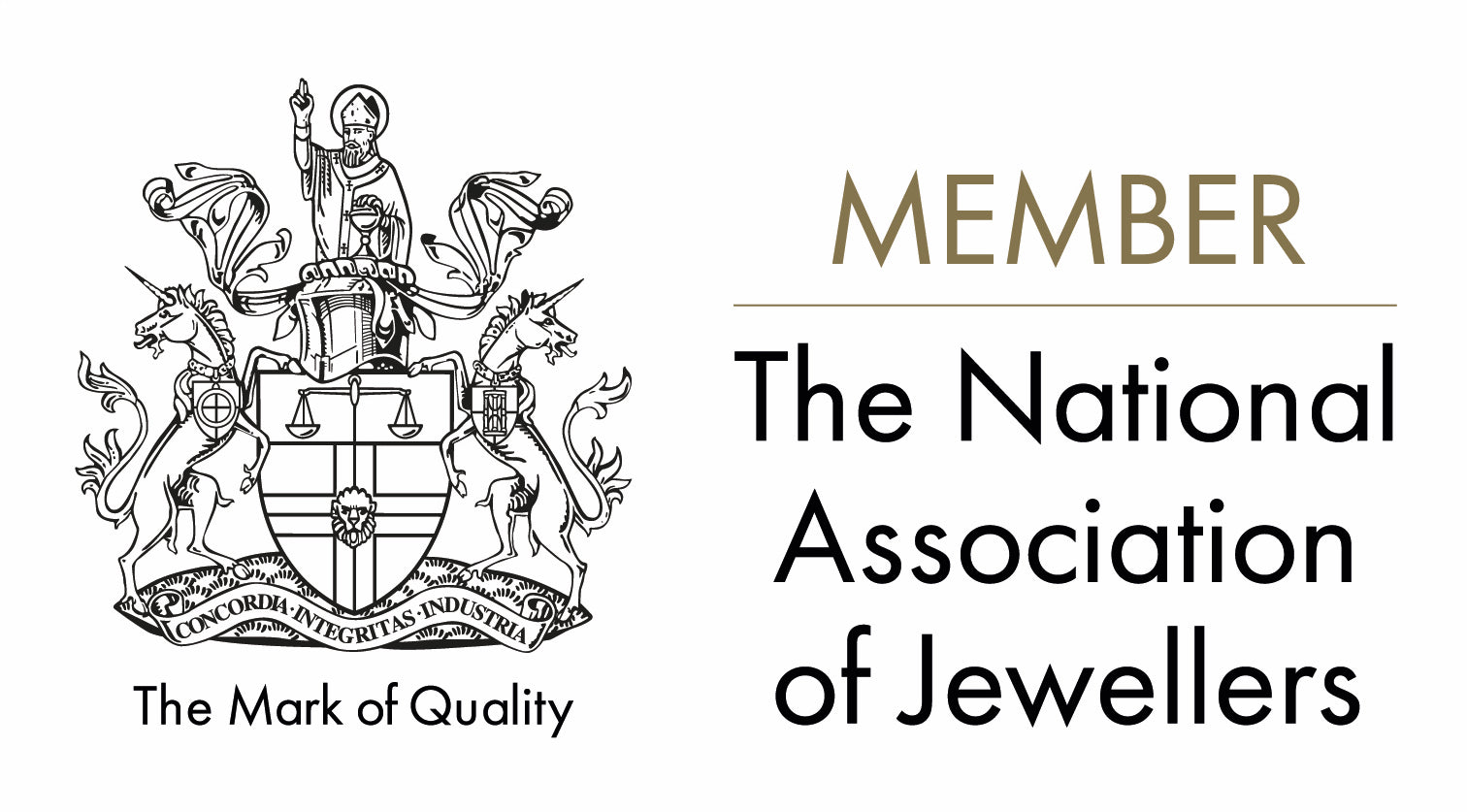Caring for your Gold Jewellery - A Guide from Laurelle Antique Jewellery
Types of Gold
Gold is one of the most precious metals on earth, and has been crafted into extraordinary pieces of jewellery since ancient times. Whether it is yellow, white or rose gold does not really matter when it comes to caring for it. What matters is the carat weight.

24 carat gold is pure gold, with no other metals added. Whilst it is undoubtedly beautiful it is also incredibly soft, and is rarely used in the creation of jewellery. If you are fortunate enough to own a piece of jewellery made of 24 carat gold then we would recommend it only be worn in the safest of scenarios. Even slight impact can cause damage which would require the skills of a jeweller to correct.
Most gold jewellery is crafted with a gold alloy – the fusion of gold with one or more additional metals to improve its strength. The most commonly used in jewellery are 18ct and 9ct, with the latter being stronger and the former brighter.

Cleaning your Gold Jewellery
One of the main reasons that gold has risen to prominence in jewellery is that it is one of the least reactive elements. This means that it will not tarnish like silver or oxidise like iron, and can be worn in contact with the skin for long periods of time. Air or moisture will have little effect on the gold in your jewellery, but it may on occasion be necessary to clean residues or fingerprints from a piece.
A soft cloth is usually sufficient to remove fingerprints or grease from the surface of gold jewellery. Usually this is as much attention as a piece needs, and although care should be taken during the process to avoid putting pressure on any thinner, more delicate pieces of metalwork (such as gem claws), most marks can be cleaned fairly easily.
For tougher residues you can use warm water with a small amount of washing up liquid. Where a cloth is not sufficient you can use a toothbrush to get to harder to reach places in the piece. If you are cleaning your jewellery over a sink it is worth remembering to put the plug in to prevent any costly accidents.

It is also important to pay attention to the other materials which make up a piece of jewellery. Emeralds and Opals, for example, are notorious fragile so it is important to protect them during the cleaning process. Older antique jewellery with closed-back gem settings should not be cleaned with water as the sealed areas can trap water and cause damage – for the same reason it’s worth avoiding wet cleaning with lockets or any other piece with closed sections.
In some cases the above options may not be sufficient to revitalise your gold jewellery. You can buy commercial cleaning products which are made specifically for the restoration of the shine of precious metals, but such products should always be used with care. Many over the counter products will be absolutely fine with gold, but may react poorly to other materials and could cause damage. Similarly silver cloths can be used to polish up gold, but may contain substances that should not be brought into contact with other precious materials. If in doubt it’s always best to err on the side of caution.
Professional Cleaning Services
Whilst the above methods are usually sufficient to keep your gold jewellery bright and clean there are circumstances where more drastic measures are needed. Given the value of gold jewellery we would strongly recommend that you seek out a qualified jeweller’s advice rather than attempting these methods on your own.
Professional polishing can rejuvenate an old piece of jewellery, however this process does strip a small amount of gold from the surface of the piece. This means it is unwise to repeat the process unless absolutely necessary as it can end up wearing away hallmarks or delicate engraving.

Some jewellers offer ultrasonic cleaning, which uses focused soundwaves to break apart dirt and grime. The effect of ultrasonics can be quite impressive, but it is important to make sure you have been advised by a professional jeweller – some older pieces, as well as certain gemstones and other materials, can respond extremely badly to this process. There is nothing more distressing than attempting to clean a beloved piece of jewellery only to have it fall apart.
At Laurelle Antique Jewellery we have decades of experience in the care and maintenance of precious metals and gemstones. If you are looking for antique or vintage gold jewellery come and see our collection and find a piece which is perfect for you!
Looking for something specific? You can get in touch on enquiries@antiquejewellerygroup.com or via telephone on England: 0333 700 4500
We look forward to hearing from you!



